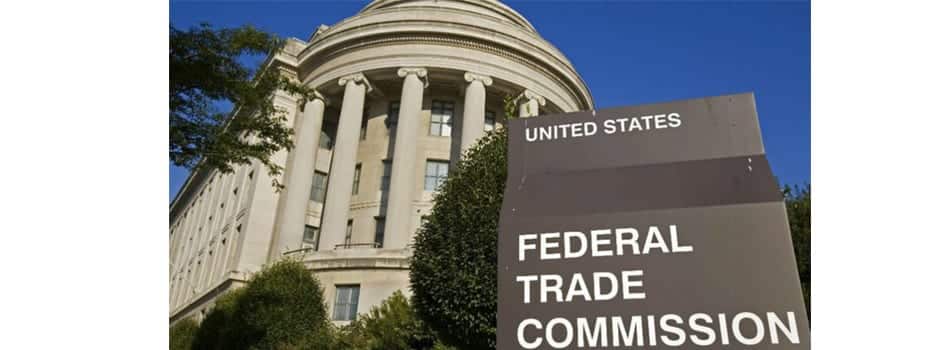This post about the upcoming FTC workshop on ticketing in Washington D.C. was written by Dave Wakeman and Eric Fuller. It is reposted with permission from Davewakeman.com
On June 11th in Washington, DC, the FTC is hosting a ticket workshop that is loosely framed as being about talking through the “problematic practices” at play in the world of tickets, but coming at the time it is has one true likely outcome: to use the ticketing industry as a punching bag as Washington ramps up for the 2020 election cycle.
What does this mean to people in tickets?
Actually, it could mean a lot.
Recently, the Trump administration took a pro-consumer action in regards to hospitals and insurance companies charging consumers out-of-network prices for in-network services. This step seemed unusual in the context of the administration’s willingness and efforts to roll back consumer healthcare protections so that insurers could do basically anything until you look at it through the lens of what gives Washington its only reason for existence: politics.
While the FTC’s ticket workshop has such listed topics as BOTS, fees, the secondary market, and how tickets are discovered online, don’t be fooled. The bulk of this workshop is going to be spent whipping ticket companies on both sides of the ticket market for political gain.
Why?
Because the ticketing industry is an easy target with little goodwill built up among consumers, talent, or anyone in a lot of instances.
A short list of potential easy targets for anyone in government includes:
- Fees with little to or no explanation or justification.
- Lack of transparency in the on-sale process.
- Consumer frustration with the ticket buying experience
- Press reports covering any ticket related mishap and the disruption, stress, and anxiety that having entertainment plans altered can cause people.
This isn’t even an exhaustive list and you can see where the entire day will be spent with executives from the ticketing industry on the defensive, reacting to consumer complaints, and the whims of federal officials playing to the stands of social media, journalists, and others.
The reality is that modern consumers don’t really differentiate the primary and secondary market as distinct destinations. This blurring is enhanced by secondary market blended into primary markets, social media networks displaying resale tickets that can be bought within the app, primary ticket sites having an official resale program and StubHub creating, possibly, the strongest brand in the ticket industry.
Instead, many consumers look at the ticket buying process much like people look at the process of buying an airline ticket, visiting Kayak, Expedia, or Booking to see what the best deal is for this specific trip.
Despite the fact that consumers love the secondary market when they get a cheap last minute ticket to see Billy Joel at the Garden, or 30 Major League Baseball teams roll out discounts on the primary market in hopes of gaining some level of attention from their fan base, as soon as a fee is charged, a ticket is priced dynamically, or prices rise due to the success of a team, consumers complain like consumers throughout time have complained about any tax, fee, or price increase.
Again, who is in the no-win situation here? It’s the people working in tickets that are going to be asked to defend dynamic pricing, technology, fees, marketing costs, and anything else that regulators feel like pressing them on.
All of this against the backdrop of Washington at campaign season where everyone is looking to score cheap political points and where both parties are happy to beat on the same subject if both can score points with no damage to themselves.
It is all of these factors that make it important for everyone involved in tickets to take the time to participate in this event. Because this isn’t just about a hearing at the FTC, it is about the size of the market and its impact on the economy; the 6,724 comments, mostly negative, filed online, and the political backdrop that puts the ticketing industry right in the crosshairs of political and governmental opportunity.
While all of us recognize that technology is changing our relationship to the market and that more transparency in the way that tickets are sold and distributed should be something we work towards, it is just as likely that without our combined attention and efforts to inform and push back against the swell of negative perception and news about the industry, the entire ticket industry will be ripe to be negatively impacted in a way that makes no sense, doesn’t help consumers, and costs everyone money.
For all of us, this means that if we don’t pay attention to the FTC’s workshop and just trust that the government will move slowly or not at all, we leave ourselves open to a nasty surprise when Donald Trump tweets out some nasty comment about one of our companies, signs an Executive Order, or, Congress and the White House find a way to work together to signal “bi-partisanship” in the lead up to the 2020 election.
You can wait to see what happens, but is that worth the risk?
We will be there. Will you?
Want to catch up with me and Eric before the FTC workshop, send me a note at dave@davewakeman.com or eric@fullerfacts.com.




